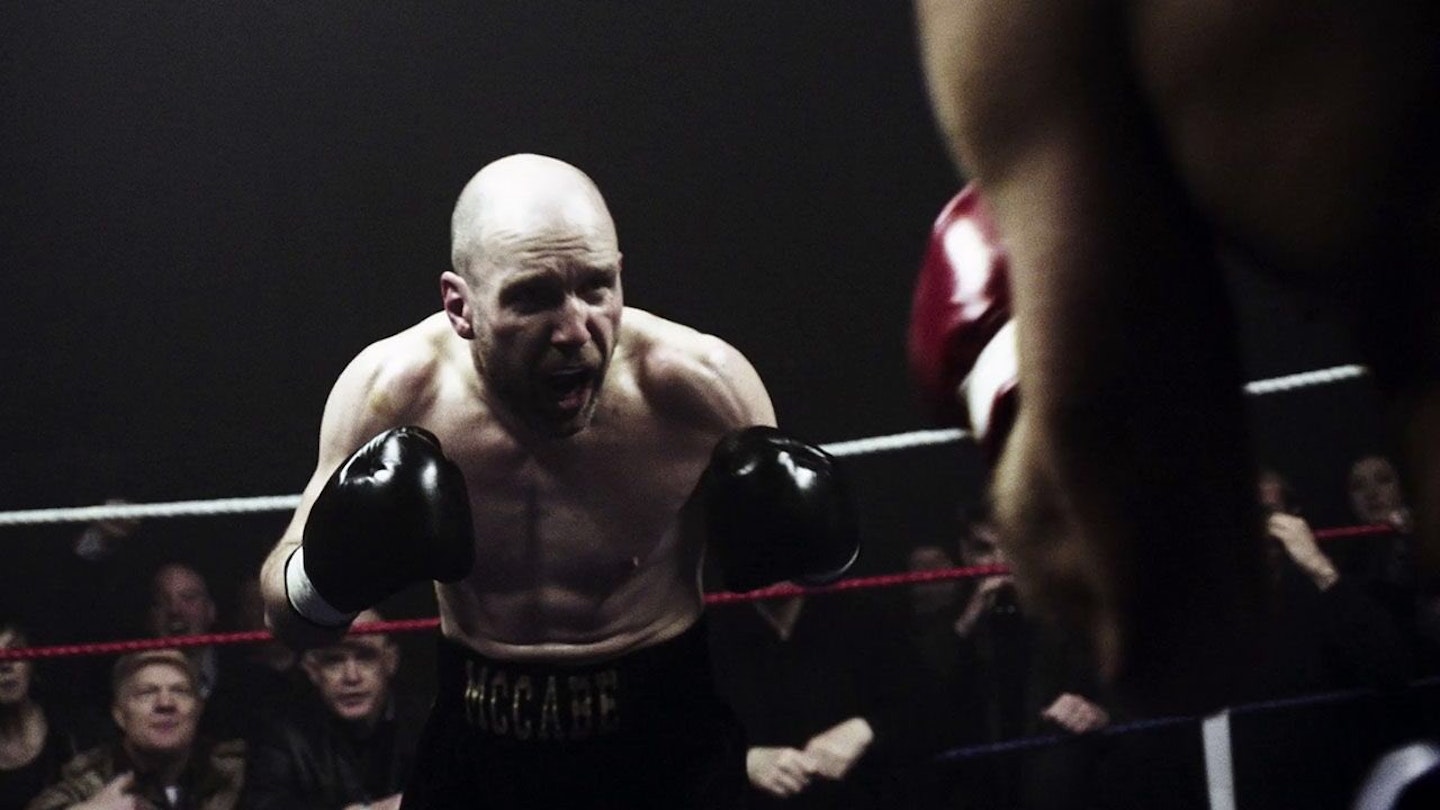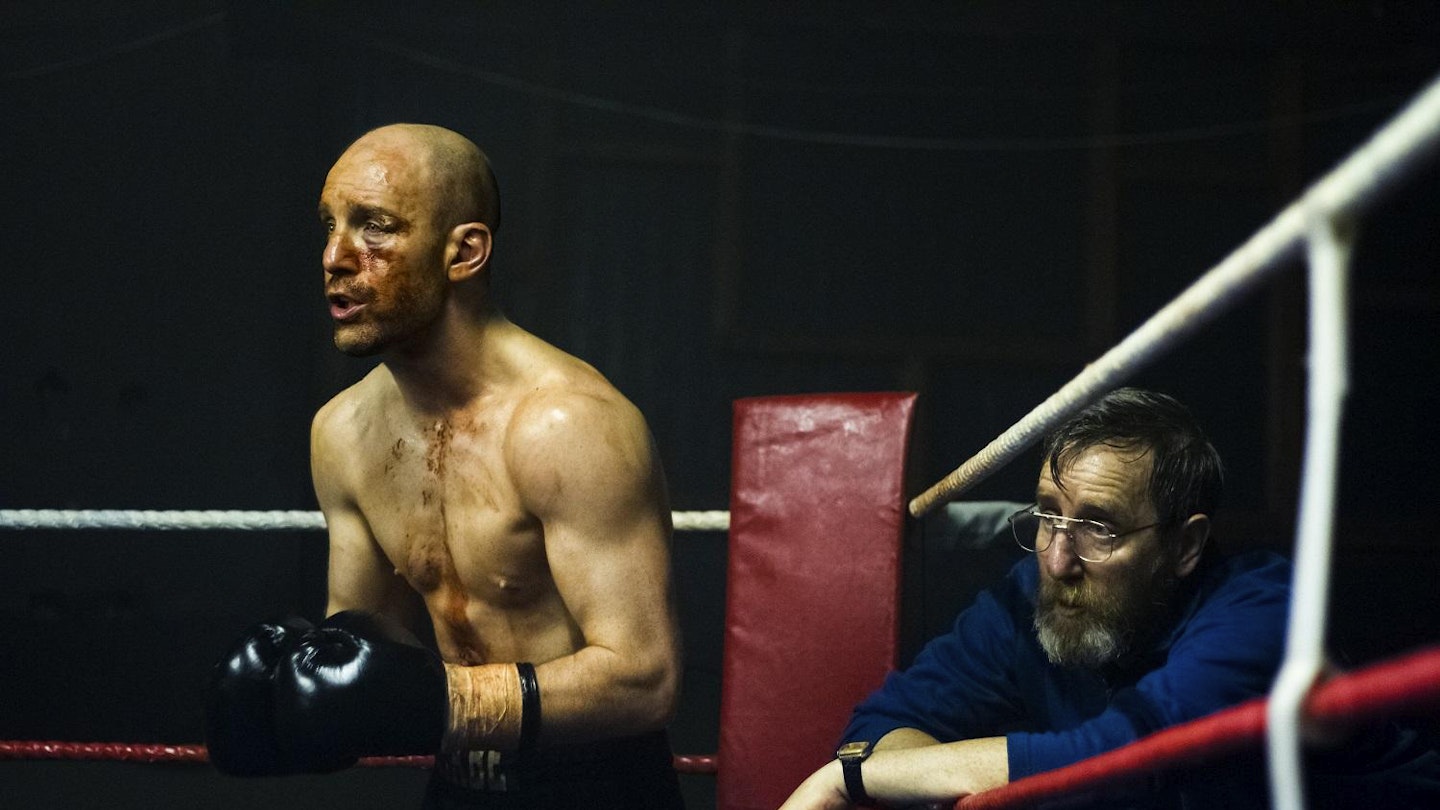Johnny Harris’ moment has been a long time coming. The British actor has made an impact in supporting roles for years, most notably in the BAFTA-nominated role of monstrous abuser Mick in the This Is England series, but he’s always a bonus, never the main attraction. With nobody handing him lead roles, Harris has written his own. In Jawbone, as both writer and lead actor, Harris suggests we’ve only seen the beginning of his potential.
There is pain through every second of Jawbone, but it’s pain worth feeling.
Harris is Jimmy — a man with the whippet-lean body of an athlete and the hollow, frightened eyes of an alcoholic, who discovers he’s about to be evicted from his soon-to-be-demolished council flat. During a visit to a grey government building to sort his living arrangements, he immediately goes on the attack — offers of help are met with stubborn demands for the impossible, while nearby security guards are regarded as a threat. He cannot process conflict rationally or examine his situation beyond the moment he’s in. It’s not surprising, then, to see him head to a boxing gym when he’s nowhere else to go. There, he only has to focus on the fists coming towards him.
Boxing as metaphor for internal battle is hardly new cinematic ground, but there are good reasons why it’s perennial. The damaged person inside the fighter offers endless character possibilities and there are few action sequences more brutally exciting than a good boxing match. As a team, Harris and first-time director Thomas Napper mostly nail both aspects. It helps that Napper has largely cast to type so there’s a character shorthand that exists. Ray Winstone is the hard-but-fair gym owner Bill, who’s the only person Jimmy is subservient to. Michael Smiley is Eddie, the trainer who is equally moved and infuriated by him. Ian McShane is the very Ian McShane-y Joe, a gangster who lines Jimmy up with an unlicensed fight. We get to know Jimmy through one-on-one conversations that reveal history, fears and small hopes without often being simply expository. Napper is keenly focused on the details of these men’s lives, tiny moments saying much about them. Bill keeps his gym and clothing neat and clean, a controlled man in a brutal world; nurturing Eddie is slow and meticulous in wrapping his fighters’ hands; Jimmy jumps at trouble like a mistreated dog.
There’s much that could be said about Harris’ physical transformation. He’s barely recognisable initially, his beardy everyman look sweated and shaved off to leave something hard and sinuous, but it’s the change as an actor that’s more notable. He’s comfortably a leading man, in the sense he can easily carry a film — there’s not much chance we’ll see him heading up romantic comedies or squeezing into superhero tights. Anybody who’s seen him on screen won’t feel any surprise that he has the talent to take on more than smaller ‘character actor’ roles, but there’s such pleasure in seeing how confidently and effectively he moves into the spotlight. Star-making is probably the wrong term, given the glitzy future that suggests, but career-making it should be.
There is only really one fight, right at the end, and Napper gives everything to it. It’s not graceful but visceral, crunchily edited from shots at every possible angle and distance. It’s the hard, wincing assault of a man with nothing to lose. It hurts to watch. There is pain through every second of Jawbone, but it’s pain worth feeling.


